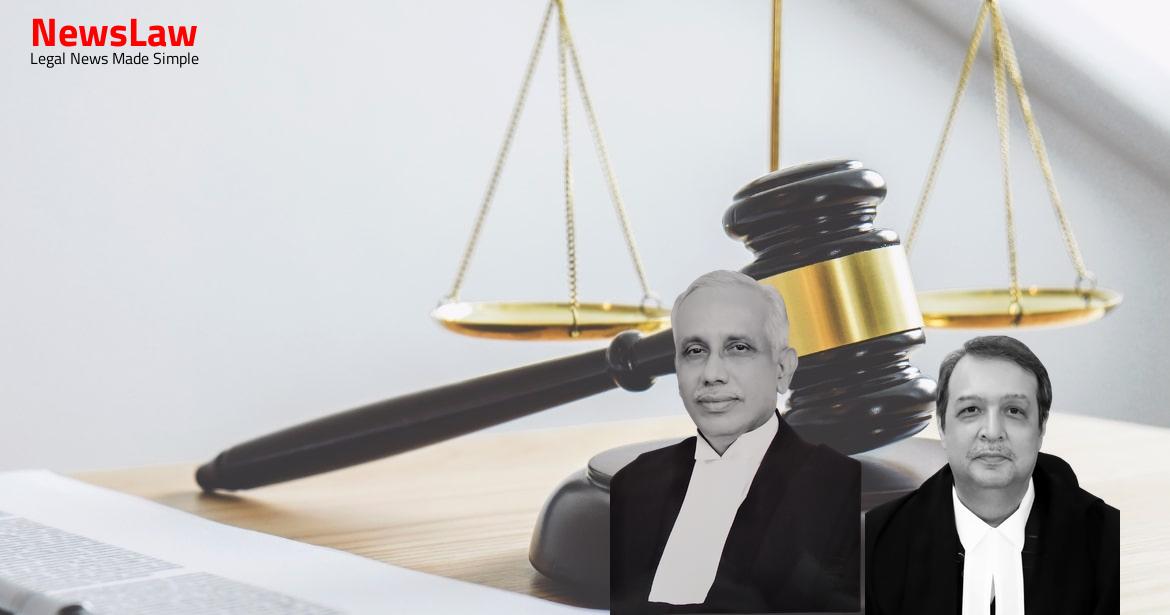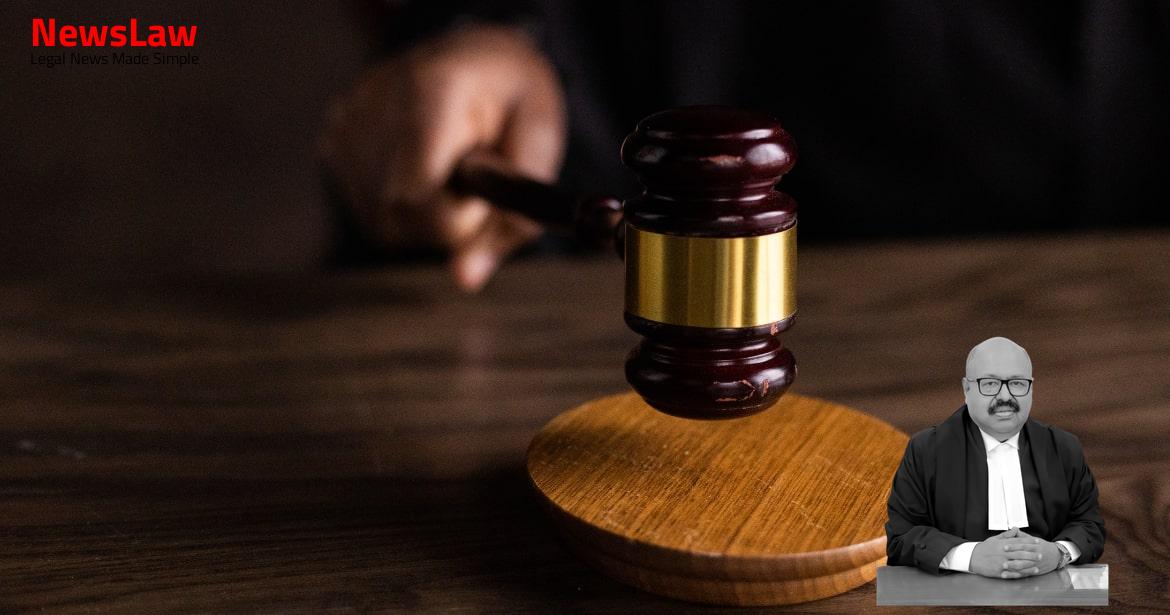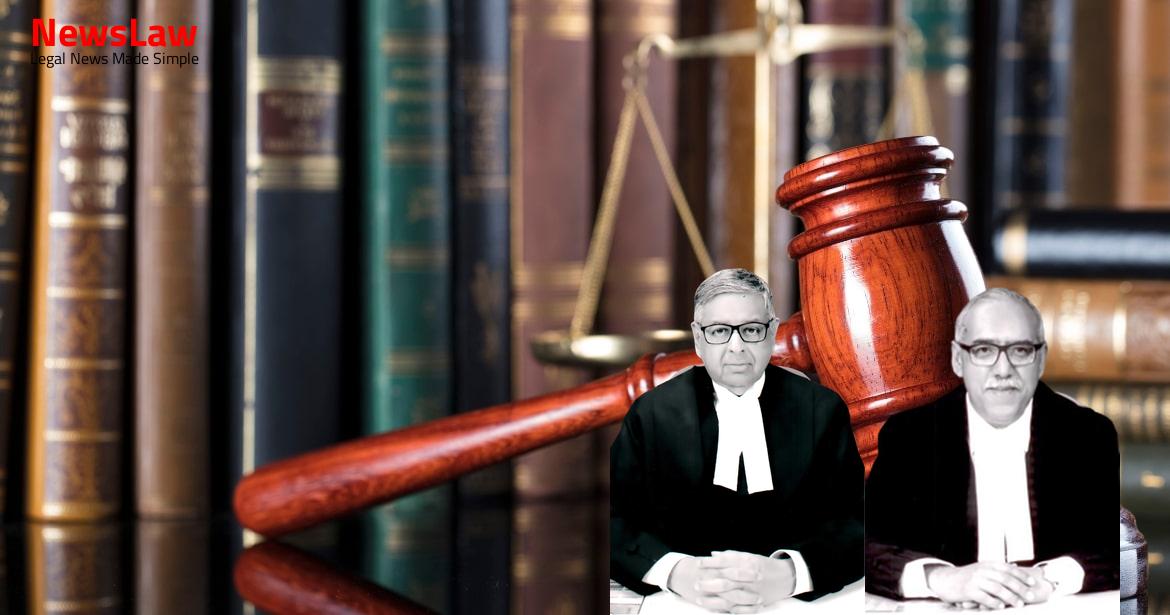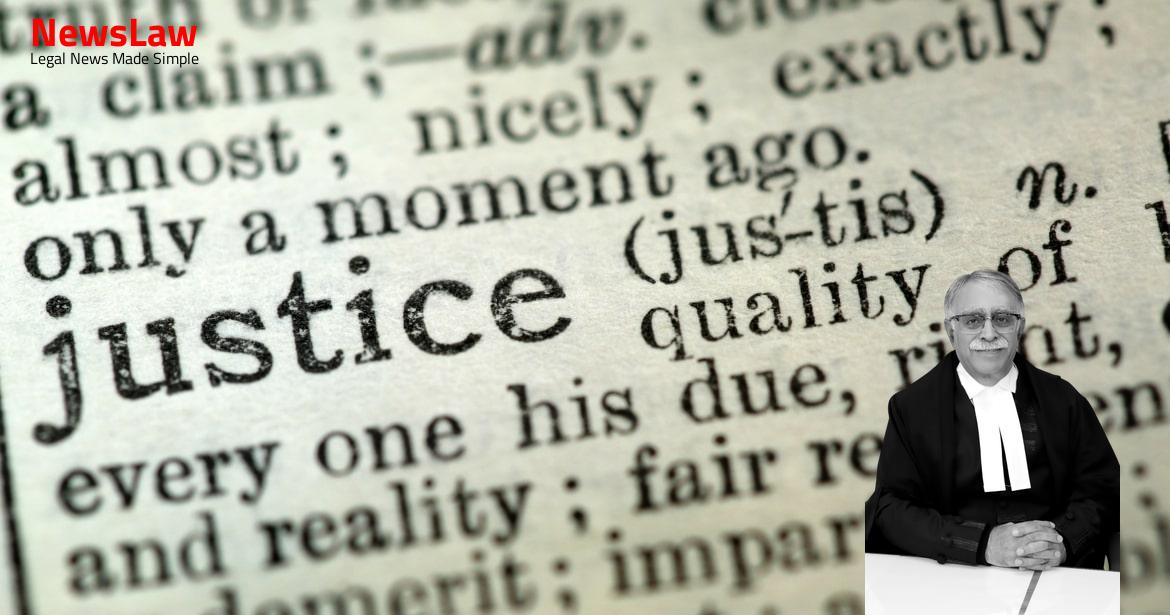Delve into a comprehensive legal analysis conducted by the court regarding obscenity and wrongful restraint offenses under the IPC. The case involved a detailed examination of the elements required to establish these offenses, emphasizing the importance of meeting specific legal criteria. This summary sheds light on the court’s interpretation of the law and its implications for similar cases in the future.
Facts
- The complaint filed by the respondent alleges offences punishable under Sections 294(b) and 341 of the IPC.
- The complaint pertains to incidents at Sadagopan Enclave, Kannappan Street, Chromepet Road, Nanmangalam, Chennai.
- Allegations include residents’ dissatisfaction with sewage treatment measures, unparliamentary language used by a landowner, and disputes over waste water flow.
- The complainant, a Treasurer of the Residents Association, sought police intervention due to the disputes.
- Legal proceedings ensued, with the High Court ultimately declining to quash the criminal proceedings.
- Specific incidents mentioned include a refusal to remove materials from a construction site, objections to waste water flow, and verbal altercations leading to police complaints.
Also Read: Court’s Jurisdiction in Re-appraising Arbitrator’s Findings
Analysis
- Section 294(b) of the IPC deals with doing obscene acts or uttering obscene words in public places.
- The test of obscenity under this section is whether the material tends to deprave and corrupt those who are susceptible to immoral influences.
- Section 341 pertains to the punishment for wrongful restraint.
- To prove wrongful restraint, it must be demonstrated that there was obstruction by the accused, which prevented a person from going in a direction they had a right to, and that the obstruction was caused voluntarily.
- The point argued was that the 1st accused did not commit an offense punishable under Section 294(b) IPC by uttering the words alleged.
- The courts below held that the words uttered were obscene and caused annoyance to the public.
- Justice K.K. Mathew disagrees with this view, citing the test of ‘obscenity’ laid down in Queen v. Hicklin, which focuses on whether the matter tends to deprave and corrupt those open to such influences.
- He concludes that while the words may be defamatory, they are not ‘obscene’ and therefore do not constitute an offense punishable under S. 294(b) IPC.
- The Supreme Court has affirmed the test of obscenity in Ranjit D. Udeshi v. State of Maharashtra and in Samuel Roth v. U.S.A., Chief Justice Warren and Justice Harlan provided similar definitions of ‘obscenity’ as having a tendency to corrupt and arouse lustful desires or impure thoughts.
- Mere abusive, humiliating, or defamatory words do not constitute an offense under Section 294(b) IPC.
- Intent or knowledge that the means adopted would cause obstruction to the complainant is necessary for an offense to be attracted.
- Lack of lascivious elements in the words used will not lead to an offense under Section 294(b).
- Absence of records specifying the alleged words used by the accused.
- Requirement of further proof to establish annoyance caused to others under Section 294 IPC.
- Lack of legal evidence showing that the words uttered by the accused annoyed others.
- Section 341 of the IPC deals with punishment for wrongful restraint.
- The averments in the complaint are deemed insufficient to constitute the offense of wrongful restraint.
- No case is established against the appellants as alleged by the complainant.
- Taking cognizance of an offense and issuing process under the Cr.P.C. require a judicious approach.
- Issuance of process must be based on a judicial assessment of the material before the court.
- Allegations in the complaint should provide material particulars of the offense against the accused.
- Vague and general allegations without material details do not justify the issuance of process.
- Process issuance should be supported by material prima facie evidence.
- Doubts raised regarding the verification of the original complainant on oath before taking cognizance and issuing process.
- Overall, there are concerns regarding the justification of the Magistrate’s order issuing process.
Also Read: Contrary Directions in Issuance of Letter of Intent
Decision
- Appeal allowed
- Impugned order set aside
- Criminal proceedings of STS No 566 of 2018 quashed
Also Read: Application for Stay in Civil Suit Rejected: Court’s Legal Analysis
Case Title: N. S. MADHANAGOPAL Vs. K . LALITHA (2022 INSC 1323)
Case Number: Crl.A. No.-001759-001759 / 2022



